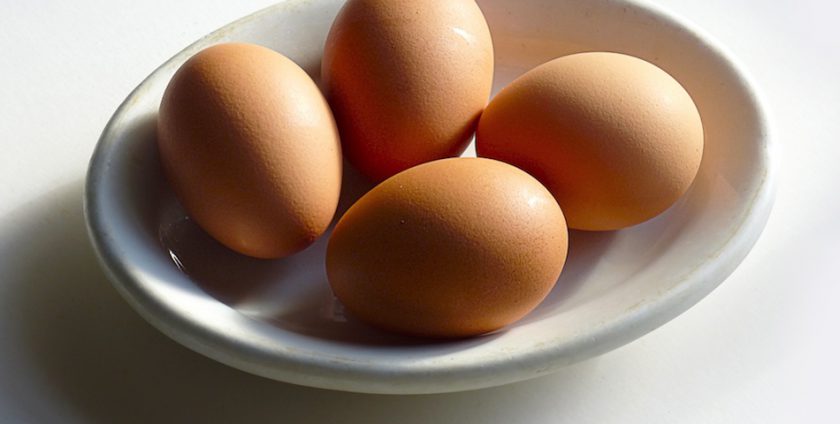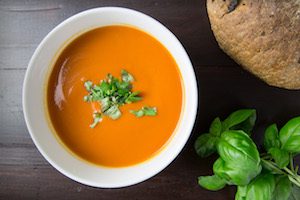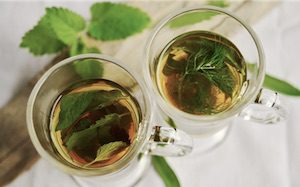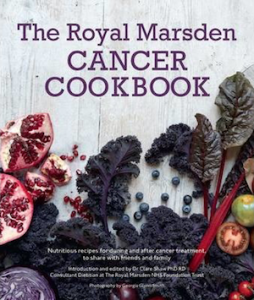Diet following bowel cancer surgery

First of all allow time for you to recover from surgery when you get home, by resting and having an energy dense, protein rich, lower fibre diet. In the early weeks you should aim to increase the amount of healthy fats (olive oil, rapeseed, avocado oils) you consume, in addition to adding honey, palm sugar or maple syrup to yoghurts, beverages and cereal, instead of refined sugars, so that you are focussed on healthier, high energy choices. Poultry, lean and non-processed meat, fish, particularly oily fish, milk, eggs and medium fat cheeses – ricotta, mozzarella and feta are all quality protein foods and are required for repair of your body following surgery.

If you are vegan, use smooth peanut butter or tofu. Pulses/beans are likely to be best tolerated initially, well cooked and liquidised.
Small, frequent meals and snacks prove easier to manage at first whilst your digestion is settling down. If you have a poor appetite and are struggling to maintain your weight do ask to be referred to a Registered Dietitian.
It is important to drink plenty following episodes of diarrhoea. If you continue to feel thirsty, try chicken, beef or vegetable soup, marmite on toast and drink well diluted fruit juice or squashes throughout the day.
Higher fibre foods, including fruits particularly those with stones, dried fruit and vegetables (chillies, peppers, cabbage, onions, brussel sprouts and broccoli) and pulses (lentils, chickpeas, kidney beans), may give you loose poo and may need to be reduced for up to six weeks.
Wholegrain cereals – high fibre bread (multigrain, wholemeal, breads) and many breakfast cereals such as Weetabix or Bran Flakes are also likely initially to make bowel motions faster moving and softer.
Caffeine stimulates bowel movements and it may be best to change to decaffeinated coffee/tea, mint and herbal drinks during this time if diarrhoea is an issue.
Diet following a colostomy
Most people will return after 6-8 weeks to being able to eat the foods they used to eat before surgery.
Foods that can cause odours: eggs, onions, green leafy vegetables particularly asparagus, fish, beans/pulses, beer/cider. (* Flatus filters are extremely helpful and an integral part of many colostomy bags).
Foods that control odours: natural yoghurt, parsley and peppermint tea or capsules.
Your stoma nurse and dietitian can both provide specialist advice on eating and drinking if you are having difficulties. It is however often trial and error finding out the offending food and it will settle down.
Diet with an ileostomy
The small bowel is narrower than the large bowel and can result in more cramps and diarrhoea occurring. A lower fibre diet as discussed above will help and all food should be well chewed and some need to be introduced more gradually as these can on occasions, cause the stoma to block: Dried fruit, raw fruit skins and pith, nuts and seeds, coconut, raw vegetables, peas, mushrooms and sweetcorn.
Food that help bind the poo if you are experiencing a very loose stoma output or diarrhoea are: Ripe bananas, boiled rice, marshmallows, jelly babies, porridge, mashed potato, white bread/pasta, smooth peanut butter.
You may however lose more fluid with an ileostomy, so aim to drink at least 1½-2 litres of fluid daily.
I recommend a Probiotic supplement during recovery – see our excellent Probiotic blog containing healthy bacteria and yeast. If you wish to consider a high dose Probiotic such as Symprove or VSL3#, you will need to discuss this first with your oncologist or surgeon.

Once you start to return to your usual diet, gradually increase your fibre intake, you may need to experiment a bit to find out which foods upset your system by keeping a BGTYG ‘Food and Symptom’ diary available on our website.
Your body will continue to recover and adapt. So do not be too disheartened, as many foods you usually enjoy, can be reintroduced a few months later. It’s hard to believe particularly if you are having a bad time, but true.
There are lots of great recipes to be found on the WCRF website. I also very much like The Royal Marsden Cancer Cookbook: Nutritious recipes for during and after cancer treatment edited by Dr Clare Shaw with recipes provided by Mary Berry, Nigella Lawson and other well known chefs.
A dietitian can support you with diet problems from diagnosis, through treatment and afterwards so do ask to be referred to a dietitian if you are experiencing problems.
This blog was written by:
Mrs Sian Shepherd, Registered Specialist Gastroenterology Dietitian
2 Responses Comment


Very helpful information , thanks
Thank you Sian for your advice . So I feel better now that I am doing it right for my husband who had surgery 2weeks ago. TINA